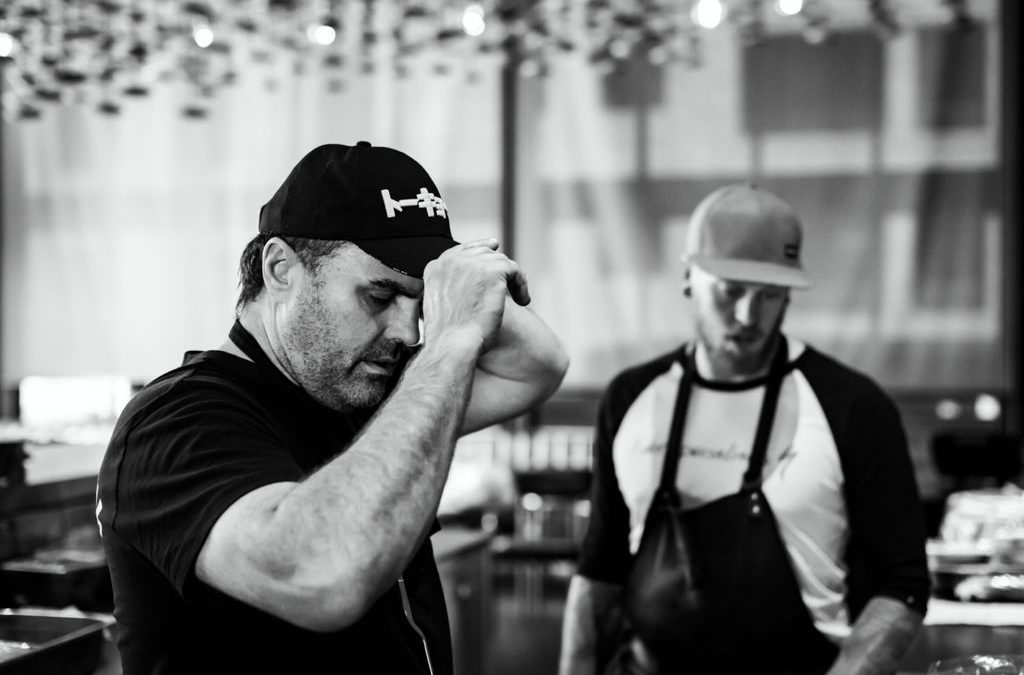We speak to two fine dining chefs responding to the challenges of this past year. The contemporary experience is diversifying and innovating. Drinks to go with this are top quality, but equally relaxed and approachable. Previously Head Chef at award-winning Terroir restaurant for 16 years, Michael Broughton’s career is exploring new paths as a result of Terroir’s closure in the first few months of lockdown. Stickman by FYN puts the spotlight on authentic Japanese yakitori and ramen, a concept that Chef Peter Tempelhoff has been developing for over a year.
Fine dining chefs have always relied on creativity and innovation as their watchword. The current climate has stretched that innovation to new levels and we’re seeing a growing trend towards what you might call fine casual: less formal offerings that are more about everyday dining than special celebrations, but still with the level of quality, ingredients and attention to detail that you would expect from fine dining.
We saw front-runners of this trend pre-Covid – Bertus Basson, Eat Out S.Pellegrino & Acqua Panna Chef of the Year 2019, opened De Vrije Burger in Stellenbosch in 2018, separate to his fine dining establishments Overture and Eike, producing the best burgers in simple style. His Stellenbosch wine bar Spek & Bone has a hot new favourite dish: their Spekkies fried chicken is delicious.
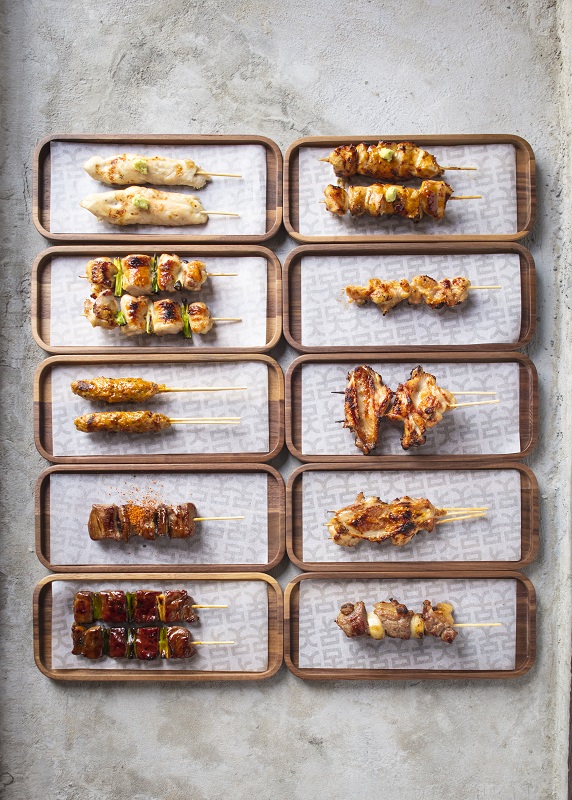
Peter Tempelhoff
Stickman by FYN puts the spotlight on authentic Japanese yakitori and ramen, a concept that Chef Peter Tempelhoff has been developing for over a year. Launched in March, it’s currently delivery-only, available through the Bolt Food app.
‘It’s not so much a dark kitchen as it is a homeless restaurant,’ he says with a laugh. He and Ashley Moss, his Executive Chef and business partner at Fyn, had been about to open their first Stickman Izakaya restaurant in Cape Town serving this typical Japanese chicken on a stick (street food) when Covid struck. ‘We were 90% ready to launch with food photographs taken, hats and paraphernalia approved, shipments of sake in my house, plates done. We didn’t want to let it fizzle out and die. It was the perfect opportunity to do something casual for the home diner.’ Stickman plugs a gap left by the quiet lunch time service, currently working out of the Fyn kitchen until 7pm. With more people working from home and less budget for business lunches, Fyn has seen a big dip in lunch custom, he says, although dinners are now busy again.
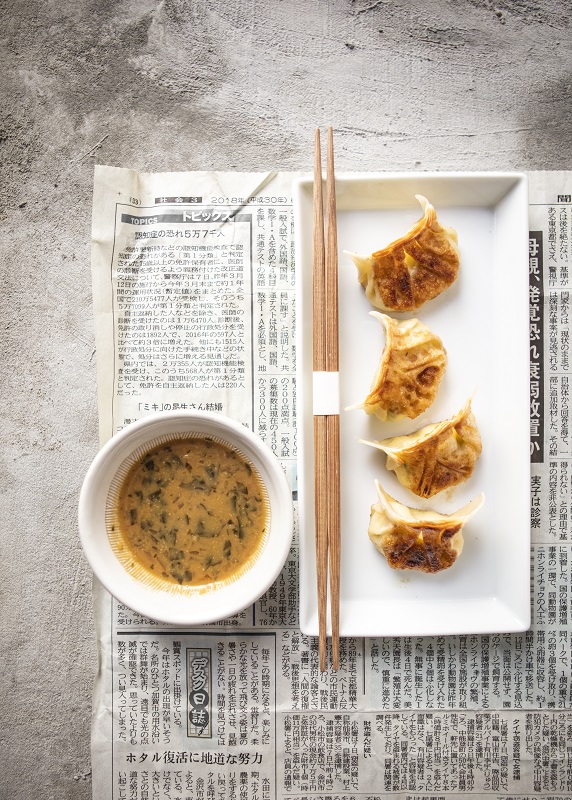
People want more from delivery these days than the standard pizzas and burgers. ‘There’s a different demand for higher quality home dining experiences. We have a lot of our regulars ordering – people who have been following Fyn and used to order Fyn at Home when we were doing those deliveries. They want a different experience. This high-quality Japanese street food offering is appealing to them, not too fancy, done really well.’
There’s nothing casual about the amount of work that went into putting the Stickman menu together. ‘We’ve done a lot of research – even something as simple as ramen noodles you wouldn’t believe how complex it is in terms of the science behind it, the broths, the techniques, the variety of different broths and noodles you can make – we’re exploring a whole new interesting world.’ The team makes everything it can in-house, including miso, importing soy sauces and kombus from Japan, as well as the best binchotan charcoal for the grill to achieve the high temperatures required. ‘We’ve sourced the best chickens in the country and in 8 weeks we’re getting rare breed poulet noir, which are being raised for us. I know it sounds like meat on a stick, like a sosatjie, but there is so much more to it.’
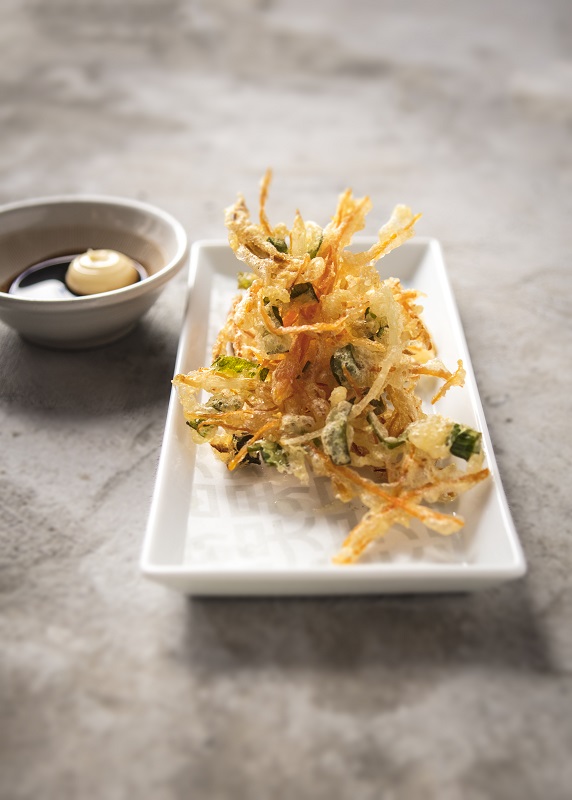
Drinks are all part of the experience – the original concept saw Japanese whiskies, sake and a specially brewed beer on the drinks menu, but the soft drinks are important too. ‘The sparkling Sanpellegrino drinks: the lemon, orange, grapefruit and the lemon ice tea, we find these pair fantastically with the food. They’ve just the acidity you need for the slight fattiness on the chicken skin, the Iberico pork and the sticky sauce – they work well with it.’
And this isn’t a flash in the pan concept to fill a short-term gap. ‘I think until the world gets back to going out again post-Covid, delivery is here to stay. People are still going to want to eat at home, but with eat out flavours.’
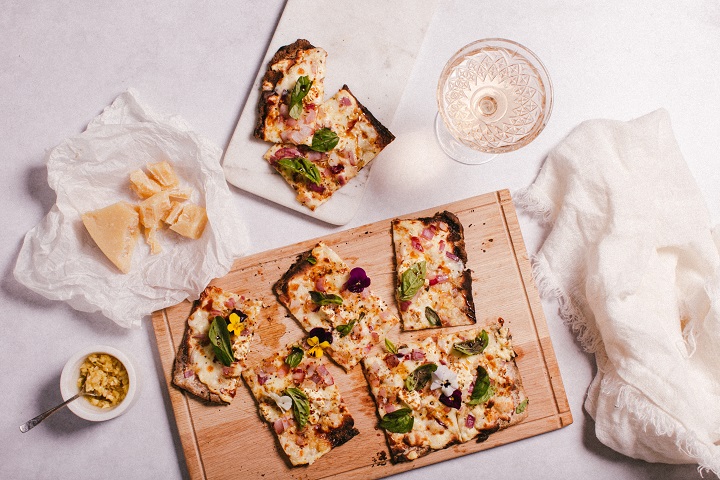
Michael Broughton
Working with Tom Breytenbach of Brenaissance Wine and Stud, Michael is now managing every detail of food and operations for four new restaurant spaces on Plein Street in Stellenbosch, the first of which to open is Cucina – an everyday Italian-inspired restaurant aimed at locals. The next to open will be The Stud Burger for eat-in and takeaways, then Bosch, a wine bar with decent sized sharing plates, and finally Ember, a top-end grill and meat experience.
‘We want to make good food more accessible, that is what Tom and I are trying to do here,’ says Michael. ‘We’re putting in the same attention to detail as in fine dining, but focussing on simple things, very well done.’ This might be a chicken salad with a spin, marinated to perfect tenderness, or a fillet steak with green pepper sauce and fries. They have a distinct advantage in that they are using beef from the Brenaissance cattle farms in the north-west where, Michael says, ‘the cows eat seven types of grass and that’s it, moving from pasture to pasture, rotating the fields. Every calf is born on that land and traced genetically through the generations. It’s a Boron beef, it really is something to eat. You pick up the flavour of the grazing in the taste of the meat, just as you do with proper Karoo lamb.’
This is another reason to include a separate burger eatery, so they can use all the cuts from the beef through the four restaurants, minimising waste. Plus of course designing an eating experience to cover every budget and occasion.
Michael is using a dark kitchen to streamline operations and to help maintain their aim of a 6-7 minute turnaround time in Cucina, which just has a finishing off kitchen open to the restaurant. ‘A dark kitchen is a wonderful concept because there’s no service, you’re not under the pressure of the rush of lunch service then dinner service with a lull in between.’
Still in the process of finalising the drinks menus, Michael was able to reveal that Bosch will be sourcing all its alcoholic drinks locally to Stellenbosch, including 20 of Stellenbosch’s top boutique wines, as well as gins, brandies and whiskies.
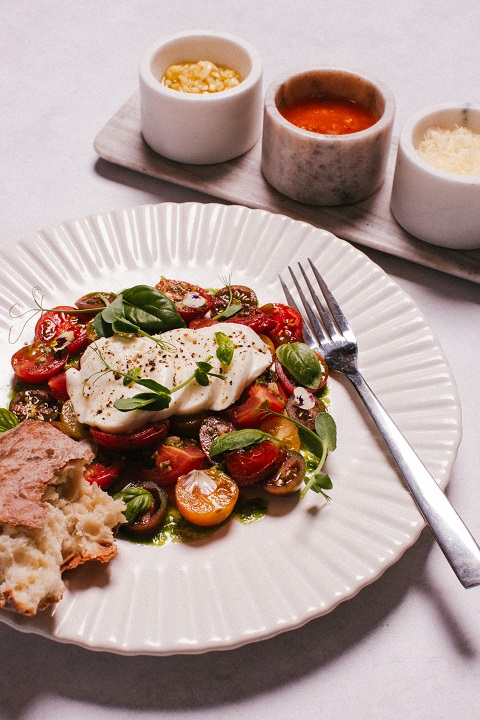
Of the move from fine dining to a more everyday casual offering, Michael says, ‘Fine dining is an expensive way to present food. I loved it, but my time in the sun of fine dining is over and I’m really enjoying what I’m doing now. I’m not using so much of my brawn behind the stove. I’m using what I’ve learned over the last 25 years and putting it together in a different package.’
He’s confident that the future looks good for this well thought out offering. ‘As the economy recovers and international travel resumes, I think this segment of the market will still be growing – easy, accessible, good food done with care and love, no bells and whistles, maybe a few tricks. Keep it simple, keep it local.’

